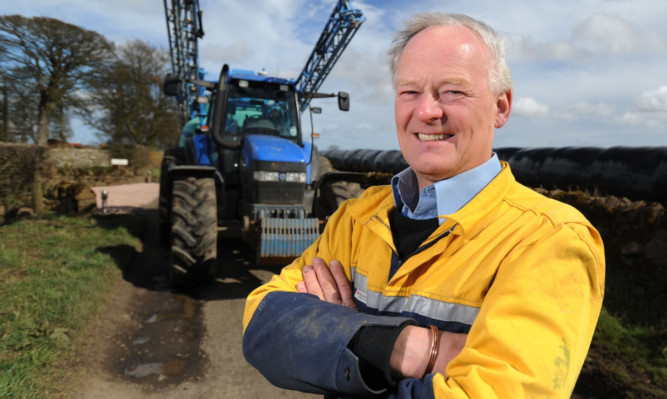Many country folk outraged at having to drag their bins to road ends to save refuse collectors from travelling up bumpy tracks have won their battle against Fife Council.
Hundreds of residents appealed against the local authority’s decision to stop bin lorries driving up their farm roads and 38% were successful.
There was a furore when rural residents were told of the new arrangements to protect employees from exposure to whole-body vibrations, said to cause back injury.
A review was conducted of rural access roads and those that were considered to be in poor condition, too narrow or lacking turning space were scrapped from the lorries’ rounds.
The new collection points are being adopted as a recycling service is introduced, which will allow householders to have cans, plastics, paper and cardboard uplifted.
As well as concerns about the inconvenience of transporting bins back and forth, particularly for elderly or disabled people, there are worries about thousands of large wheeled bins being left at the side of busy roads.
Of the 460 households which appealed, 176 have been told by the council’s transportation and environment service that their door-to-door collection will continue.
Opposition councillor Donald Macgregor said: “When nearly four out of every 10 appeals against change are upheld, it begs the question how the service got it so wrong?
“Surely it would have been better to have taken more care with the initial assessment of the suitability of roads, choice of vehicle etc and come up with a more appropriate scheme, which would have saved everybody’s time, energy and worry.”
Fellow Liberal Democrat councillor Elizabeth Riches said: “We welcome the fact that many rural Fifers will now have a chance to recycle household waste more easily and that there will be vehicles coming all the way up to their houses and farms to empty the bins.
“For some of those who have not had their appeal upheld, arrangements have been made for a vehicle to visit twice a month to empty landfill bins.
“As far as recycling is concerned, for these people recycling will still be possible when they visit supermarkets etc that offer these facilities.”
Farmer John Picken, of Priorletham Farm, near St Andrews, was furious at being told his access road was too narrow for bin lorries, despite being able to drive his combine harvester up it.
However, he has reached an agreement that one lorry, rather than two, will continue to serve his home and the 13 others nearby.
He said: “I am very pleased Fife Council has been able to come up with a sensible solution for this part of the neighbourhood but there are others who haven’t had such a good outcome.
“It’s a shame it has come to this. We in the country pay our council tax like everyone else but we don’t get the all the services those who live in the towns do.”
Councillor Pat Callaghan, executive spokesman for transportation and environment, said: “All 5,400 rural properties that we collect waste from received a thorough assessment and decisions were based on the information gathered and advice from independent consultants.
“This criteria was agreed by the former environment, enterprise and transportation committee.
“The consultation was expanded to include specific issues, including access.
“Of the 5,400 residences offered the new rural collection service, 460 appeals were received and 176 appeals were upheld.
“The appeals process allowed residents the opportunity to feedback if they felt the risk assessments were inaccurate and to let us know if improvements had been made since the assessments were carried out.”
